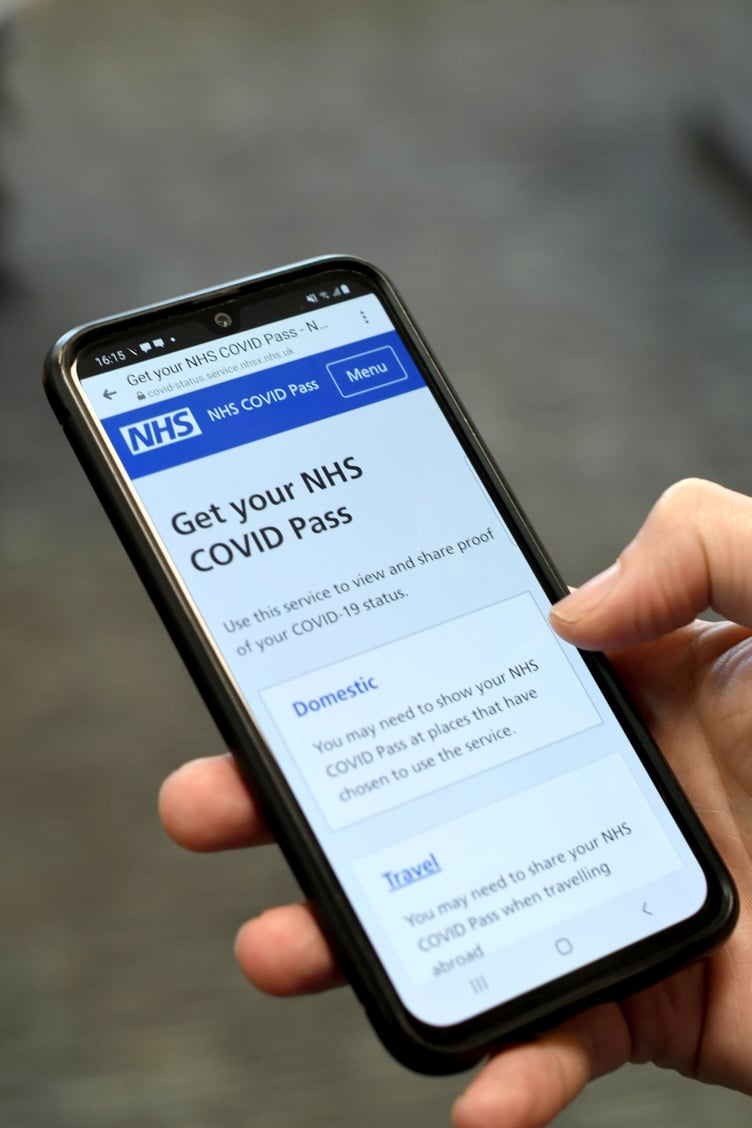Vaccination status may be in the forefront of the minds of those wanting to travel this summer.
Going on holiday last summer was a certifiable minefield, with different vaccine requirements for different destinations, and varying levels of proof needed.
So, what is the picture this year?
For some holiday destinations this summer, you have to have had a booster, for others, you may only have to have had your primary course. However, some questions arise when considering how long ago you received that dose.
Whilst this certificate is not applicable for us here in the Isle of Man, the NHS Covid Pass for travel does the same thing, and can be accessed by Manxies.
We took a look at the most popular holiday destinations to see what they require.
SPAIN
In Spain, if you are fully vaccinated and travelling from the UK, you can enter, but your vaccination status must meet the Spanish authorities’ validity period requirements.
If you have received a booster, you are considered fully vaccinated for entry into Spain.
As soon as you receive your booster, you are considered fully vaccinated with immediate effect. There is currently no expiry date for booster jabs.
If you are aged 18 or over and have not received a booster, but have received two doses of a two-dose vaccine or one dose of a single-dose vaccine approved for use by Spain, then at least 14 days and no more than 270 days must have passed since your last dose, to qualify as fully vaccinated.
France
Fully vaccinated travellers from the UK aged 12 and over must provide proof of vaccination.
If you have received a booster, you are considered fully vaccinated for entry into France. There is currently no expiry date for booster jabs.
If you are aged 18 and over and have not received a booster, but have received two doses of a vaccine approved for use by France, then no more than nine months must have passed since your second dose, to qualify as fully vaccinated.
Italy
Travellers are no longer required to complete a passenger locator form (EU PLF) to enter or travel through Italy as a visitor.
On June 1, Covid-19 restrictions on entering Italy were lifted.
Italy does not require any proof of vaccination, a negative test result, or a Covid-19 recovery certificate to enter the country, regardless of your vaccination status.
All passengers entering Italy by ferry, train or coach must wear an FFP2 mask in order to enter the country.
Masks are no longer required on flights in, to or from Italy.
Portugal
A passenger locator form is no longer required for entry to mainland Portugal, Madeira and the Azores.
There are no Covid-19 vaccination or testing requirements for entry to mainland Portugal, Madeira and Porto Santo.
But to enter the Azores region, the rules are the same as those in Spain.
If you have received a booster of a vaccine approved by the European Medicines Agency, you are considered fully vaccinated for entry to the Azores, and there is currently no expiry date for booster jabs.
If you have not received a booster, but have received a full course of an approved vaccine, then at least 14 days and no more than 270 days must have passed since your second dose, to qualify as fully vaccinated.
If you are travelling through Spain or France to get to Portugal, you have to follow their entry requirements.
Turkey
As of June 1, all Covid-19 restrictions in Turkey have been lifted, and passengers arriving in Turkey are no longer required to present proof of vaccination or negative PCR test results.
However, Covid-19 entry requirements may change at short notice, so you should check the specifics with your airline before you travel. Further details are available on Turkish Airlines or Pegasus websites.
Greece
Passengers arriving in Greece do not need to show a proof of Covid vaccination, a negative test, or a certificate of recovery. You also do not need to complete a Passenger Locator Form (PLF).
But travellers are still required to wear a mask on public transport.
United States
Most fully vaccinated foreign citizens can enter the USA.
Since Sunday, June 12, the US Centers for Disease Control and Prevention (CDC) no longer requires pre-departure Covid-19 testing for USA-bound air travellers.
Upon arrival, fully vaccinated travellers do not have to quarantine, but they are recommended to take a test within three to five days of arrival in the US.
If you have recovered from a documented Covid-19 infection within the past 90 days (regardless of vaccination status) you do not need to do this test.
l Travel advice, including the latest information on coronavirus, safety and security, entry requirements and travel warnings can be found by simply selecting your destination country on the UK government’s website at: www.gov.uk/foreign-travel-advice
Passports
On a side note, it is worth noting that if you are planning to travel to an EU country (except Ireland), or Switzerland, Norway, Iceland, Liechtenstein, Andorra, Monaco, San Marino or Vatican City, you must follow the Schengen area passport requirements.
This is an after effect of the Brexit process.
This means that your passport must be:
l Issued less than 10 years before the date you enter the country (check the ‘date of issue’)
l Valid for at least three months after the day you plan to leave (check the ‘expiry date’)
You must check your passport meets these requirements before you travel.
If your passport was issued before October 1, 2018, extra months may have been added to its expiry date.
Contact the embassy of the country you are visiting if you think that your passport does not meet both these requirements, and renew your passport if you need to.




.jpeg?width=209&height=140&crop=209:145,smart&quality=75)
Comments
This article has no comments yet. Be the first to leave a comment.